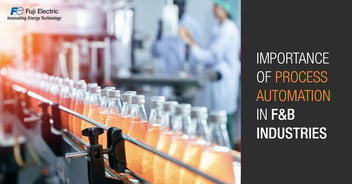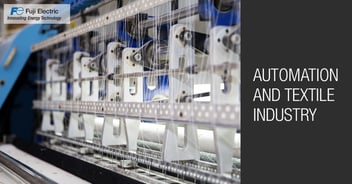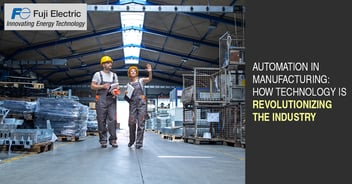Factory Automation: Future of Food and Beverage Manufacturing
Modern smart factories are increasingly incorporating automation, which has led to gains in operational efficiency, supply chain transparency, and corporate synergy. Automation has created the potential for the food and beverage sector to boost income, create new revenue streams, and create efficiencies from the factory floor to regulatory compliance. Factory automation has been revolutionizing the manufacturing industry for decades, and the food and beverage sector is no exception. With the help of automation technology, food and beverage manufacturers can increase efficiency, reduce waste, and improve product consistency. In the food and beverage industry, factory automation has the potential to revolutionize the way that products are produced, packaged, and distributed.
The quality of the product, efficiency in the production, and maintaining sustainable production along with energy efficiency were some of the major challenges faced by the food and beverage industry currently, and factory automation, up to a great, extend was able to solve many of the challenges in the industry.
The shift toward Factory Automation
The need for automation is shaped by several factors, including competitive pressures. Consumer behavior is evolving, and as a result, different products are being sought after to meet dietary and cultural demands. In today's market environment, adding a production line for every new product makes it difficult at best to stay ahead in "the game of choice," as it leaves little room for operational flexibility. To increase output, productivity, and efficiency in their operations, food and beverage operators are increasingly turning to smart manufacturing and starting a journey of digital transformation. Applying factory automation in the F&B industry will help in optimizing their workforce, enhancing product quality and traceability, delivering flexibility and customization, and carrying production with innovation and sustainability.
Enhanced product quality and traceability
Products and goods can be tracked throughout the supply chain journey using automation and modern analytics tools, which enable manufacturers to tap in anywhere along the chain and see the information they need. As the supply chain performs better overall and manufacturers have complete visibility into all important processes, automation can help reduce stress and compliance costs. For instance, an ERP system consolidates the data into a single location to create a single source of data. With the help of deeper analytics, it is possible to quickly determine how long products spend at a specific supply chain stop and identify areas for improvement.
Operational Efficiency
The importance of increasing operational efficiency across all production lines and increasing customer proximity cannot be overstated. Advanced analytics and automated technology will aid in creating a precise profile and predictive system for future gains, such as more accurate sales forecasting reports. It is also beneficial to keep track of modifications in consumer behavior and spot any new trends or preferences. Automation offers an in-depth understanding of market trends that can be applied during the process of developing new products. Automation enables manufacturers to gather intelligent data insights from the production line, which can be used to improve maintenance response times and prevent energy waste.
Increased worker safety
Automated systems can even handle the most hazardous tasks on production lines, freeing up workers from monotonous, repetitive motion jobs. To increase efficiency, it also frees up the employees to concentrate on more business-critical tasks. Production areas like packing and cutting can be automated to increase output while lowering worker injury risks. The long-term reduction of maintenance costs is also aided by improved worker safety. New equipment or additional workforce training are frequently required for compliance with new regulations, and these processes can take time. Automation makes it easier to adapt to new industry changes and saves time by requiring only the updating of existing hardware and software to meet compliance standards.
Innovation and sustainability
Automation and sustainability go hand in hand. When sealing an item in packaging, for instance, precise temperature and pressure control ensure that the product is correctly and safely packaged, preventing scrap and rework. The complexity of the factors that producers must take into account, such as packaging thickness, the surrounding temperature, and the speed of the packaging film, necessitates the development of a system that can capture and analyze real-time data. They will be able to act more sustainably and productively going forward as a result.
However, automation has advantages that go beyond just raising productivity and raising quality. Automation can help manufacturers stay competitive by reducing their reliance on human labor in the face of a global labor shortage and rising labor costs.
Embracing Fuji’s Solution for Sustainable and Competitive F&B Industry
Looking to the future, it is likely that we will see even greater adoption of automation technology in the food and beverage industry. This could include the use of robots for tasks such as harvesting, sorting, and packing, as well as the integration of artificial intelligence for tasks such as forecasting and demand planning. Fuji Electric offers a wide range of automation systems and technologies that can help manufacturers increase efficiency, reduce costs, and improve safety and sanitation. From control systems and robots to sensors and data analysis tools, Fuji Electric has the tools and expertise to help food and beverage manufacturers stay competitive in a rapidly-changing market.
 China
China Europe
Europe France
France Hong Kong
Hong Kong Indonesia
Indonesia Japan
Japan Singapore
Singapore Thailand
Thailand USA
USA

